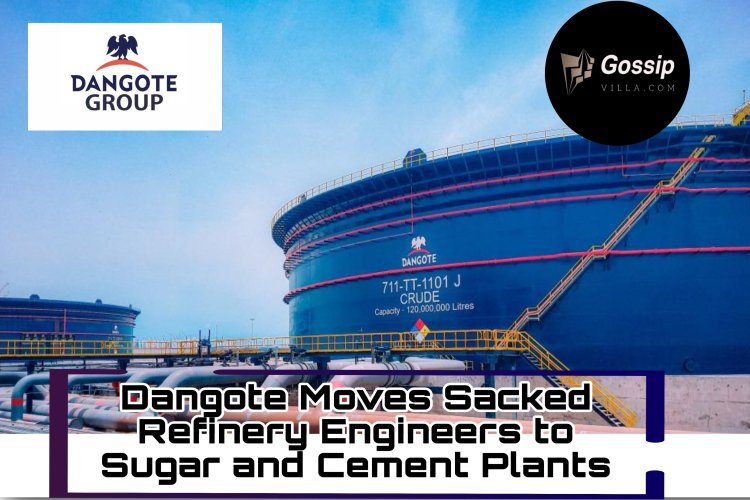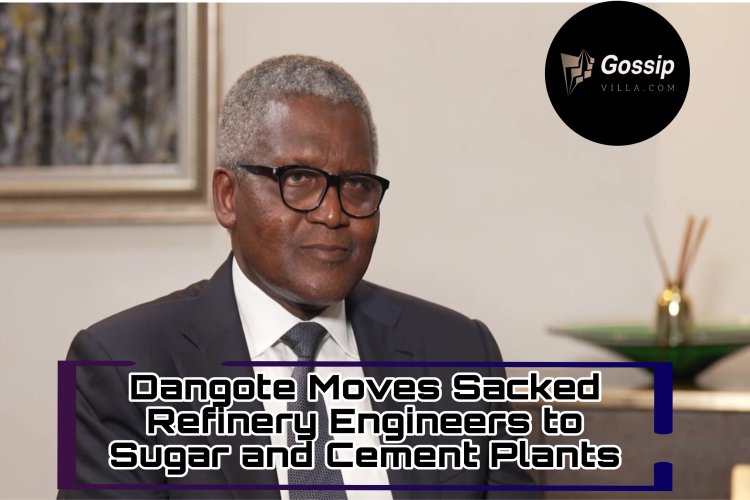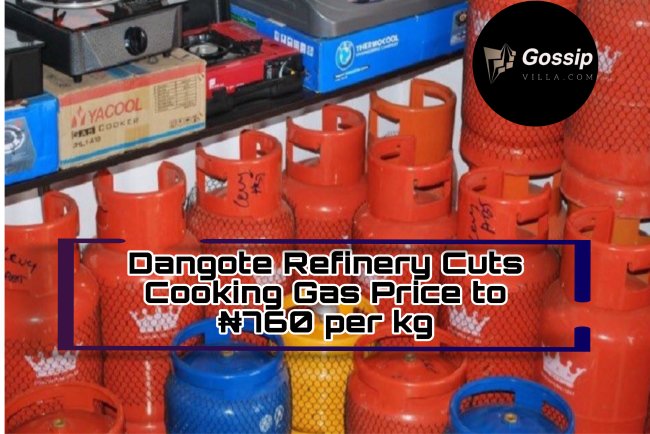Dangote Moves Sacked Refinery Engineers to Sugar and Cement Plants
Dangote Group has reassigned over 100 engineers sacked from its Lekki refinery for joining PENGASSAN to its sugar and cement plants, stripping them of union membership.

Dangote Moves Sacked Refinery Engineers to Sugar and Cement Plants
In a surprising move, the Dangote Group has reassigned over 100 engineers who were recently fired from its $19 billion Lekki refinery in Nigeria. These workers, sacked for joining the Petroleum and Natural Gas Senior Staff Association of Nigeria (PENGASSAN), are now being sent to work in the company’s sugar and cement plants. This shift means they are no longer part of the oil and gas industry and lose their PENGASSAN membership. Here’s a simple breakdown of what happened and what it means.
Why Were the Engineers Sacked?
Last week, around 120 engineers at the Dangote Petroleum Refinery joined PENGASSAN, a union that fights for better pay and working conditions in Nigeria’s oil and gas sector. The union is a big deal because it protects workers in an industry known for tough conditions. But within a day of joining, these engineers were fired. Dangote said they broke company rules by joining the union. PENGASSAN called this unfair and threatened to fight back, possibly with strikes.

What’s Happening Now?
Instead of leaving these engineers jobless, Dangote decided to move them to other parts of its business, like sugar plants in Apapa and Kano and cement factories across Nigeria. These jobs need similar skills, like managing machines and ensuring quality, so the workers can still use their expertise. The company also plans to hire new graduates to fill the empty spots at the refinery.
Why Can’t They Stay in PENGASSAN?
PENGASSAN only represents workers in the oil and gas industry. Since the engineers are now working in sugar (food industry) and cement (construction materials), they can’t stay in the union. This is a clever move by Dangote because it avoids further union conflicts while keeping the workers employed. PENGASSAN isn’t happy, calling it a sneaky way to fire people without calling it that.
What Does This Mean for the Workers?
For the engineers, this is both good and bad:
• Good: They still have jobs in a tough economy where unemployment is high (about 33% in Nigeria). Dangote’s sugar and cement plants are stable, and the pay is similar to what they earned at the refinery.
• Bad: Working at the refinery was a big deal, tied to Nigeria’s dream of producing its own fuel. Moving to sugar or cement feels like a step down for some. Plus, they lose the union’s support, which means less power to demand better treatment.
Why Is This a Big Deal?
The Dangote Refinery is a massive project meant to reduce Nigeria’s need for imported fuel. But it’s facing challenges, like conflicts between workers and the company. This situation shows how powerful companies like Dangote can control the workplace. By moving workers to other industries, Dangote avoids union trouble and keeps its business running smoothly.
People on X are talking about this a lot. Some, like @MSIngawa, think it’s a smart move that saves jobs. Others say it’s unfair and hurts workers’ rights. The government stepped in to help settle the issue, which led to the reassignment deal.
What’s Next?
This move helps Dangote keep its skilled workers while avoiding more fights with PENGASSAN. It also shows how companies can use rules to their advantage. For workers, it’s a reminder that joining a union can be risky in Nigeria’s private sector. For the country, it highlights the need for stronger labor laws to protect workers no matter where they work.
Dangote’s empire, from cement to sugar to oil, keeps growing, and this reassignment keeps its businesses strong. But it also raises questions about how workers will be treated as Nigeria’s industries expand.
News Sources
What's Your Reaction?




















